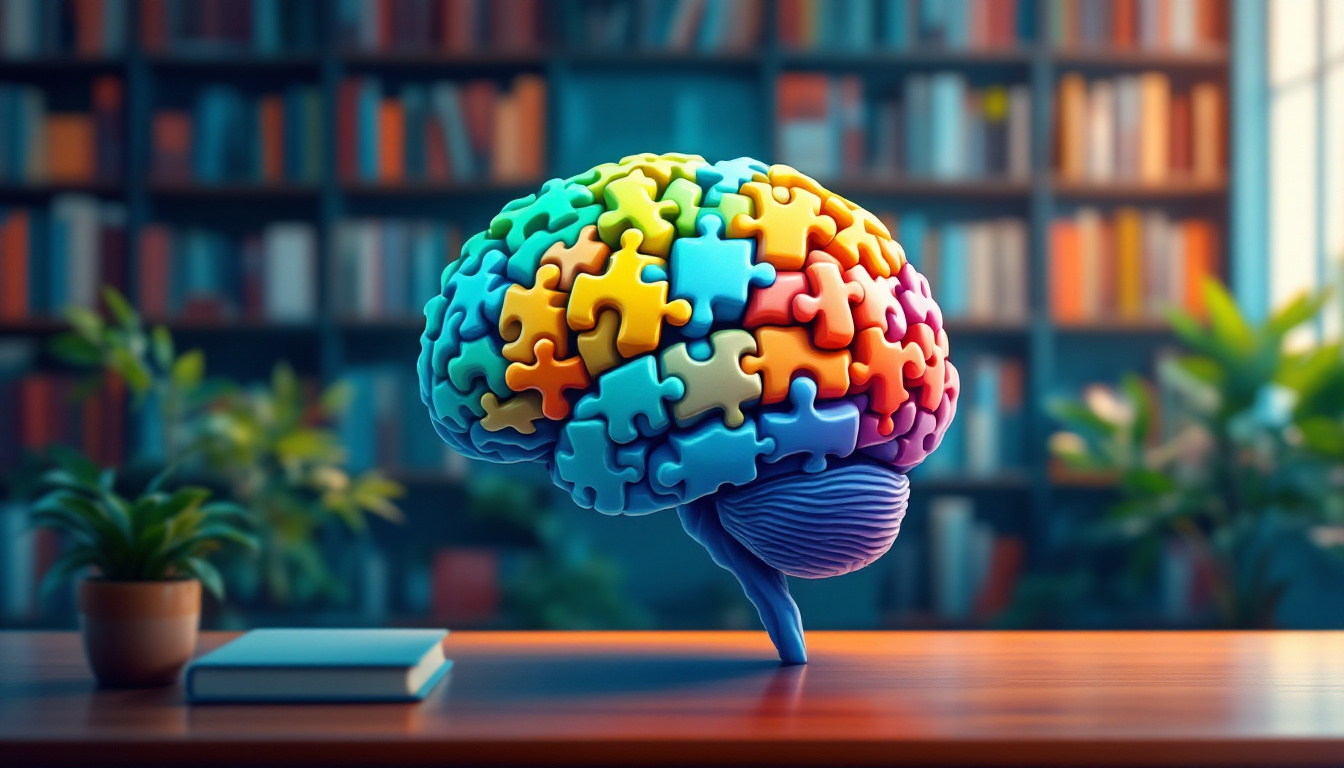Understanding Learning Disabilities
In today's educational landscape, the need to tailor programs for children with learning disabilities has become increasingly important. These children often face unique challenges that can make traditional learning environments difficult to navigate. Fortunately, a range of specialized programs is available to support skill development, ensuring that all children can achieve academic success and personal growth. This article delves into some of these skill development programs, focusing on methodologies, benefits, and resources available for children with learning disabilities.
Online Skill Development Programs
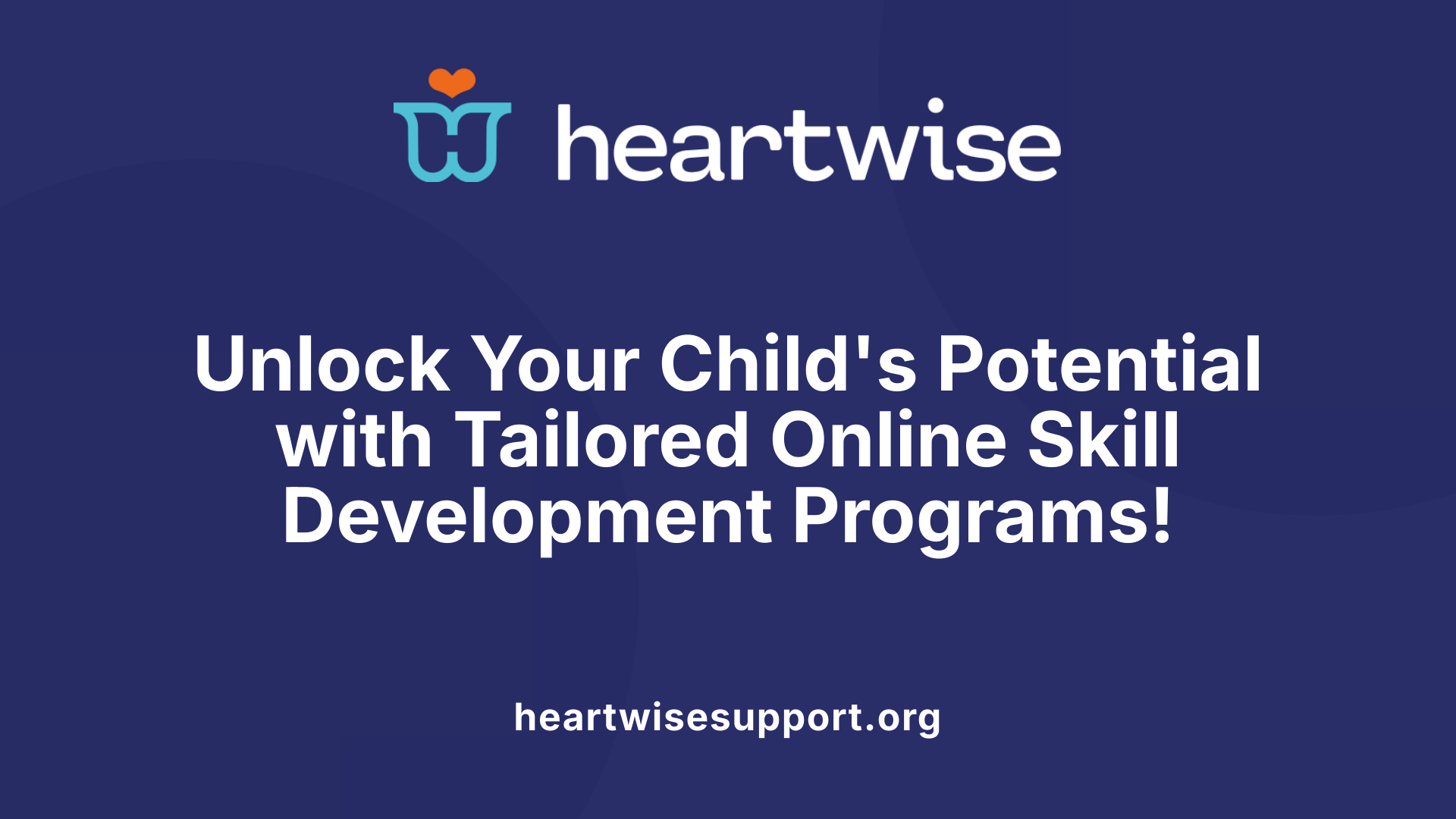
What are online skill development programs for children with learning disabilities?
Online skill development programs for children with learning disabilities encompass a range of training modules designed specifically for various disabilities including Autism, dyslexia, and Down Syndrome. For instance, the Inflight Skills Academy provides essential training in independent living and social skills through a self-paced learning format. This flexibility allows learners to progress in a way that suits their individual needs.
Winston Online offers an education program that emphasizes individualized remediation, equipping students with critical life skills such as resilience and self-advocacy. These online programs adapt to the diverse learning styles of students, providing an engaging and supportive educational environment.
Benefits of online learning
Online learning is particularly beneficial for children with learning disabilities because it often features:
- Flexible Scheduling: Learners can access materials at their own pace, making it easier to balance study time with other commitments.
- Personalized Learning: Many programs align with Individualized Education Programs (IEPs), ensuring tailored educational approaches that meet each student’s unique needs.
- Accessibility: Students can learn from home, reducing the anxiety related to traditional classroom settings.
Flexible structure options
Online programs frequently incorporate flexible structure options such as:
- Asynchronous Learning: Courses that allow students to access content at any time.
- Synchronous Classes: Live sessions where students can interact with instructors and peers, enhancing social learning opportunities.
Adaptive learning approaches
The use of adaptive learning techniques in these programs enhances the educational experience. This means:
- Adjustable Content: Learning materials can be modified based on student performance, ensuring effective skill development.
- Progress Tracking: Students and educators can monitor progress in real-time, allowing for timely adjustments to learning strategies.
In conclusion, online skill development programs represent a vital avenue for children with learning disabilities, effectively addressing their educational needs while empowering them to thrive.
The NILD Educational Approach
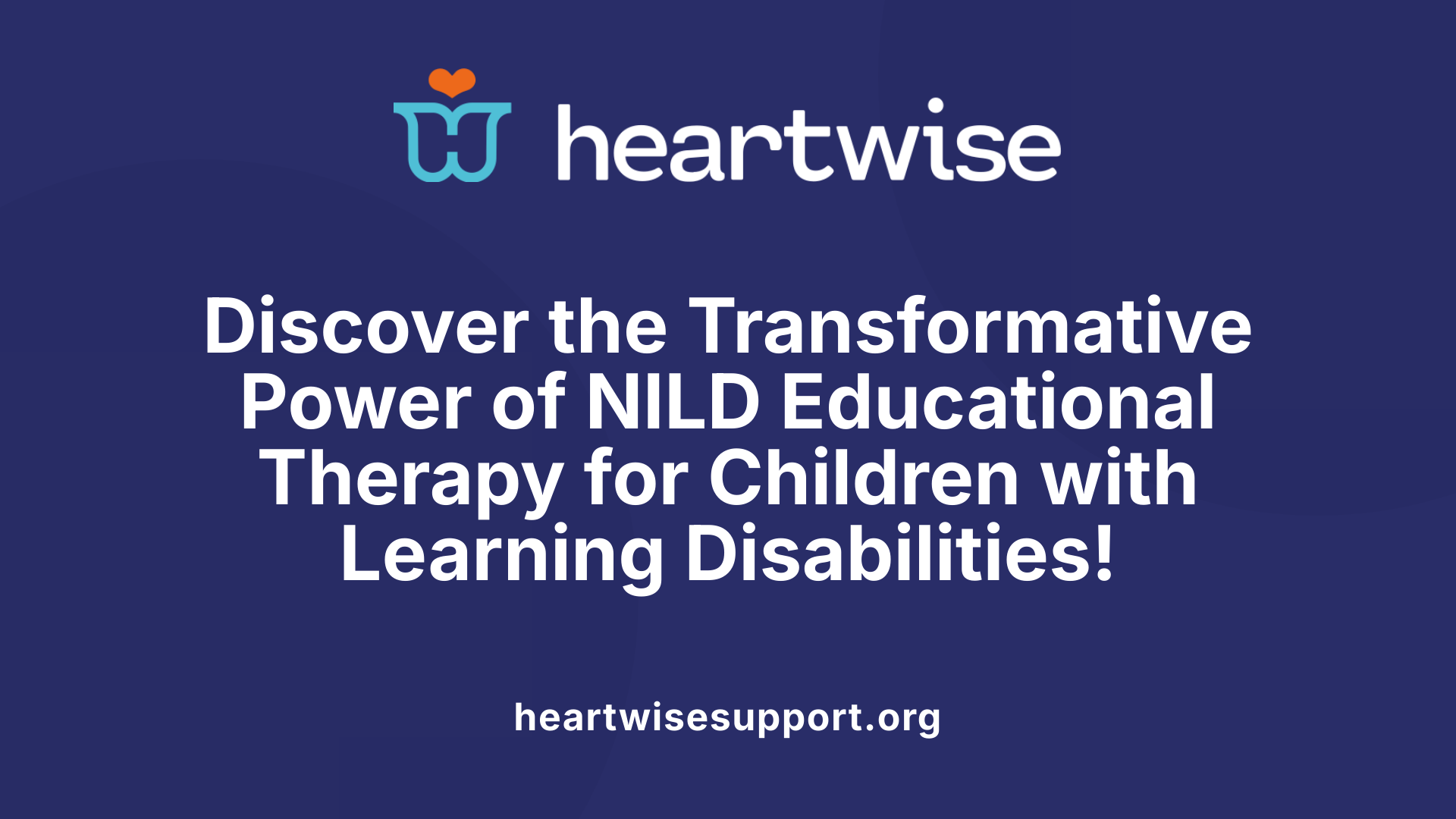
What is NILD Educational Therapy and how does it benefit children with learning disabilities?
NILD Educational Therapy is a specialized intervention tailored for children experiencing learning disabilities, such as ADHD, Autism, and Dyslexia. Rather than simply offering short-term tutoring solutions, NILD focuses on diagnosing and addressing the underlying causes of these challenges. This comprehensive approach helps students develop into independent learners equipped with the skills they need for lifelong success.
The therapy begins with a complete psycho-educational assessment, allowing professionals to create personalized therapy programs suited to individual student needs. Utilizing 26 specific techniques, these programs promote cognitive processing enhancement through interactive language and dynamic interventions, essential for improving core academic skills. This emphasis on cognitive skills training represents a significant evolution in support strategies, moving beyond mere accommodations.
NILD's methodology ensures that learning remains engaging by involving collaborative efforts among therapists, parents, and educators. This collaboration fosters a supportive network that not only focuses on academic progress but also strengthens the child’s confidence and personal capabilities. Ultimately, the NILD educational approach empowers children to tackle learning challenges proactively and encourages them to take the initiative in their educational journey.
Top Skill Development Programs
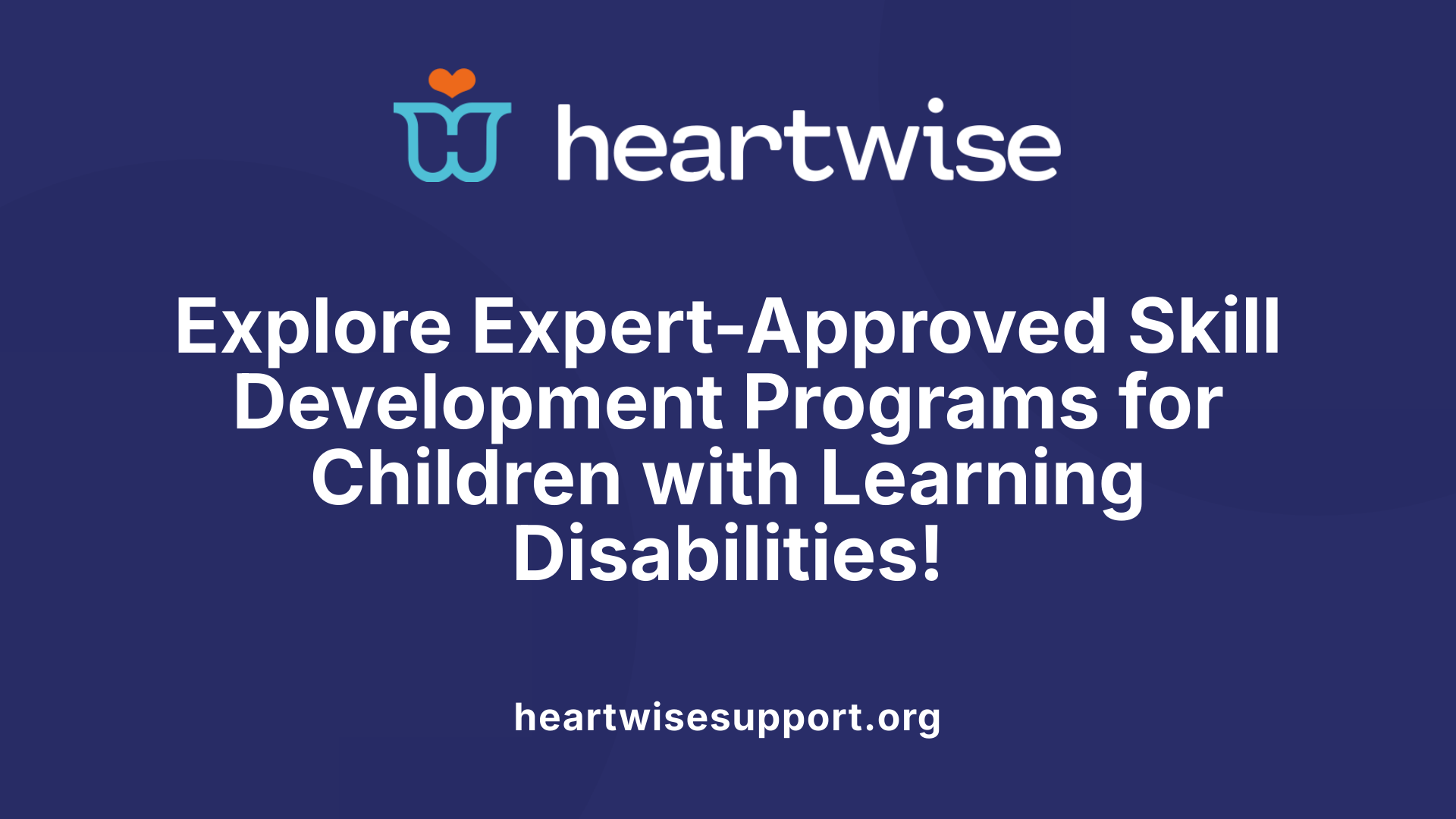
What are the best skill development programs available for children with learning disabilities?
There are several effective skill development programs tailored for children with learning disabilities. The National Institute for Learning Development (NILD) stands out by offering personalized educational therapy. This approach focuses on enhancing cognitive processing and core academic skills, fostering independent thinking rather than merely providing temporary tutoring solutions.
Social Skills Training (SST)
Social Skills Training (SST) programs like ASSET, Social Life - LD, and Social Stories™ specifically target the social challenges faced by children with learning disabilities. These initiatives are aimed at improving their social skills and emotional well-being through practical strategies.
- ASSET: Targets adolescents, teaching key social skills and conflict resolution.
- Social Life - LD: Utilizes board games to enhance skills in peer interaction.
- Social Stories™: Introduces narratives that assist children in navigating social situations effectively.
Caregiver Training Programs
The Caregiver Skills Training (CST) program provides essential support to families. It equips caregivers with strategies to enhance children's communication, daily living skills, and overall well-being. By focusing on everyday routines, CST fosters meaningful engagement in children's development.
Importance of Interactive Learning
All these programs prioritize interactive learning experiences, making skill development engaging and effective. This hands-on approach, combined with tailored strategies, fosters a holistic environment where children with learning disabilities can thrive.
| Program Type | Focus Area | Target Audience |
|---|---|---|
| Educational Therapy | Cognitive and academic skills | Students with LD |
| Social Skills Training (SST) | Social interaction and problem-solving | Children and adolescents |
| Caregiver Skills Training (CST) | Communication and daily living skills | Parents and caregivers |
By leveraging these various programs, families can support their children’s developmental journey while addressing individual needs and learning preferences.
Community and Free Resources
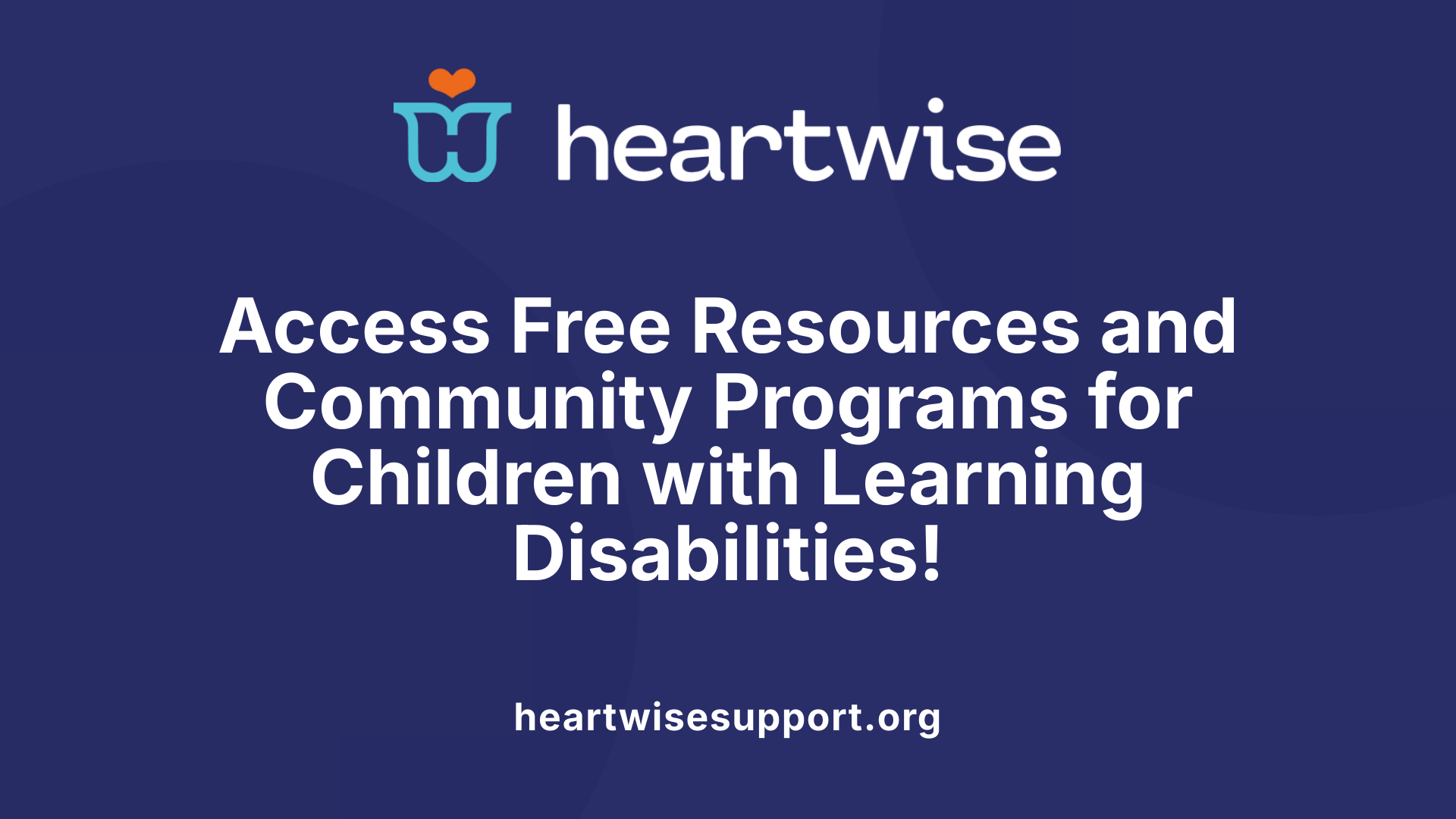
Are there free skill development programs for children with learning disabilities?
Yes, there are numerous free skill development programs available for children with learning disabilities. One notable option is the free PediaLink courses provided by the American Academy of Pediatrics, which covers various developmental issues, including ADHD and autism.
In addition, the National Institute for Learning Disabilities (NILD) offers professional training along with personalized educational therapy programs aimed at children with different learning differences. The 'Understanding Child Development and Disabilities' course is another free resource targeting professionals and caregivers involved with children's education.
Moreover, the Texas Project First provides free online training modules designed for parents and educators, which address key topics related to special education. This reflects a commitment to ensuring that those who support children with learning disabilities have access to critical information and effective strategies for fostering development.
Access to Professional Development
To further support skill development, various organizations promote community involvement. The National Center for Learning Disabilities (NCLD) focuses on advocacy and resources tailored for families and educators, helping them to empower children effectively. Additionally, Smart Kids with Learning Disabilities hosts an annual conference featuring workshops and expert presentations, offering parents a platform to connect, ask questions, and gain practical strategies for handling learning challenges.
While various free programs exist, the ongoing development of support networks remains crucial for enhancing the educational experiences of children with learning disabilities.
Strategic Approaches for Skill Development

What resources does the National Institute of Learning Disabilities provide for skill development?
The National Institute of Learning Disabilities (NILD) offers a wealth of resources aimed at enhancing skill development for children with learning disabilities.
NILD provides professional training for educators, specialists, and parents, focusing on supporting students with learning differences such as ADHD, Autism, and Dyslexia. This training equips stakeholders with the tools necessary to foster cognitive growth and independence in neurodiverse learners.
Individualized strategies
NILD emphasizes the importance of individualized educational approaches. They perform comprehensive psycho-educational assessments to design personalized therapy programs tailored to each child's unique needs. This bespoke approach allows for tackling core academic skills while also fostering critical thinking and cognitive processing.
Teaching methods
Utilizing over 26 specific techniques, NILD’s methodology is centered on interactive learning and dynamic interventions. This not only helps students improve their academic performance but also cultivates their ability to become independent learners, preparing them for success in various aspects of life.
Resource utilization
In addition to personalized therapy, NILD assigns resources that focus on long-term learning solutions rather than temporary tutoring. This includes access to workshops and events tailored to parents and caregivers, reinforcing skills through practical activities both at school and home.
Engagement techniques
Engagement is integral to NILD's strategy. They encourage parents to actively participate with their children through games and daily observations, reinforcing learning in a fun, interactive manner. Simple activities like finding letters or numbers in the environment or using educational software can significantly enrich the learning experience, ensuring that children remain engaged and motivated.
Empowering Future Generations
Skill development programs for children with learning disabilities are crucial in offering tailored educational experiences that cater to individual needs. By leveraging online programs, specialized therapies like NILD, and engaging with supportive community resources, children with learning disabilities can thrive both academically and socially. These programs not only empower children but also equip parents and educators with the necessary tools to foster a nurturing and effective learning environment. As we continue to understand and address the complexities of learning disabilities, embracing these adept and flexible strategies will remain vital in shaping inclusive and supportive educational landscapes for future generations.
References
- National Institute for Learning Development: Home
- Activities For Young Children: Providing Practice For Development
- A Comprehensive Transition Support Program for Individuals with ...
- National Center for Learning Disabilities
- Trades for People with Learning Disabilities | CdLS Foundation
- Social Skills Training (SST) for Students with Learning Disabilities
- Caregiver Skills Training (developmental delays/disabilities)

